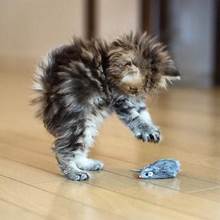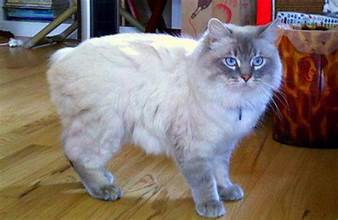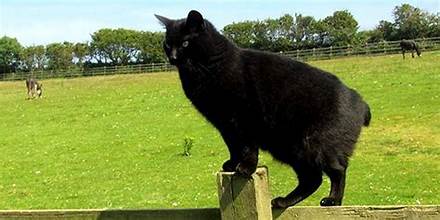The Manx is a one-of-a-kind cat breed, instantly captivating with its unique lack of a tail. This fascinating feline boasts a distinct appearance and a playful, affectionate personality.
Origin
The Manx breed is believed to have originated on the Isle of Man, located in the Irish Sea. The lack of a tail is thought to be a genetic mutation that occurred on the island, possibly due to a genetic bottleneck effect.
Unique Features
- Taillessness:
The most striking feature of the Manx is its lack of a tail. This can range from a complete absence of a tail (rump-type) to a short nub (riser-type).
- Muscular Build:
Manx cats are known for their muscular and athletic builds.
- Round Appearance:
They often have a rounded appearance, with well-developed hindquarters.
Personality
- Playful and Energetic:

Manx cats are not only highly energetic but also incredibly playful. They enjoy interactive toys, climbing, and exploring their surroundings, providing endless entertainment.
- Affectionate:
Despite their playful nature, Manx cats are known for their loving and social nature. They often form deep bonds with their human companions, making them feel truly loved.
- Intelligent:
This breed can be easily trained with positive reinforcement.
Care Needs
Manx cats have short coats that require minimal grooming. Regular brushing helps remove loose hair and distribute natural oils.
- Diet:
A high-quality, balanced diet is essential for maintaining their health and vitality.
- Exercise:
Due to their active nature, Manx cats require plenty of opportunities for exercise. This can include climbing trees, playing with interactive toys, and regular play sessions. Providing them with scratching posts and climbing trees can help satisfy their natural urge to climb and explore.

- Socialization:
Early socialization is crucial for a well-adjusted Manx. Introducing them to various people, animals, and experiences from a young age can help them develop into confident and well-behaved cats. This can include regular handling, exposure to different environments, and positive interactions with other pets.
Health Considerations
- Spina Bifida:
Manx cats can be prone to a genetic condition called spina bifida, which can cause neurological issues. Responsible breeders screen their cats for this condition.
Conclusion
The Manx is a unique and captivating breed with a distinctive appearance and a playful, affectionate personality. They typically live for 12-14 years, but with proper care, some have been known to live into their late teens. However, their high energy levels can be a challenge for some owners. The Manx may be the perfect fit if you’re looking for an energetic and loving feline companion.




